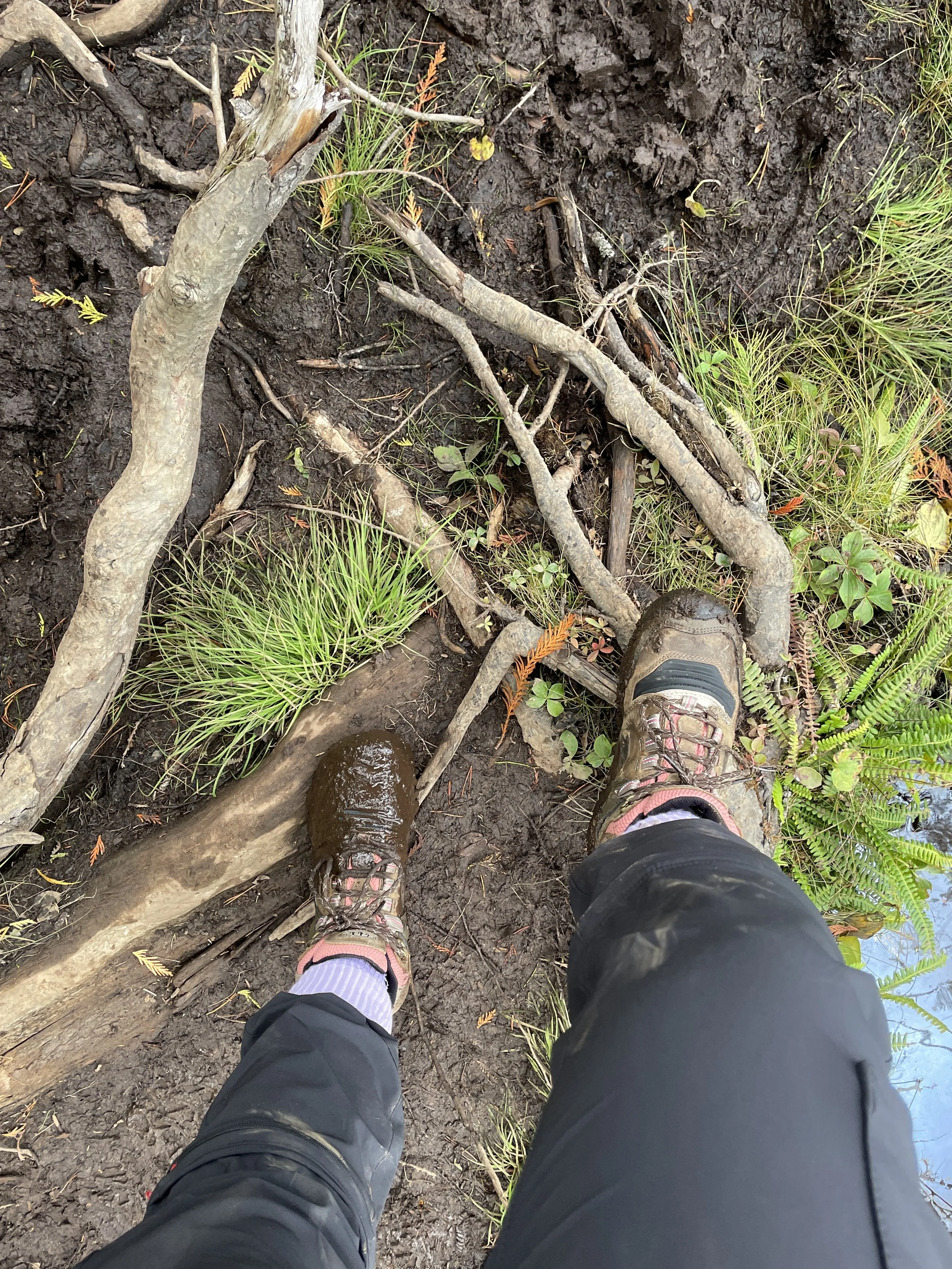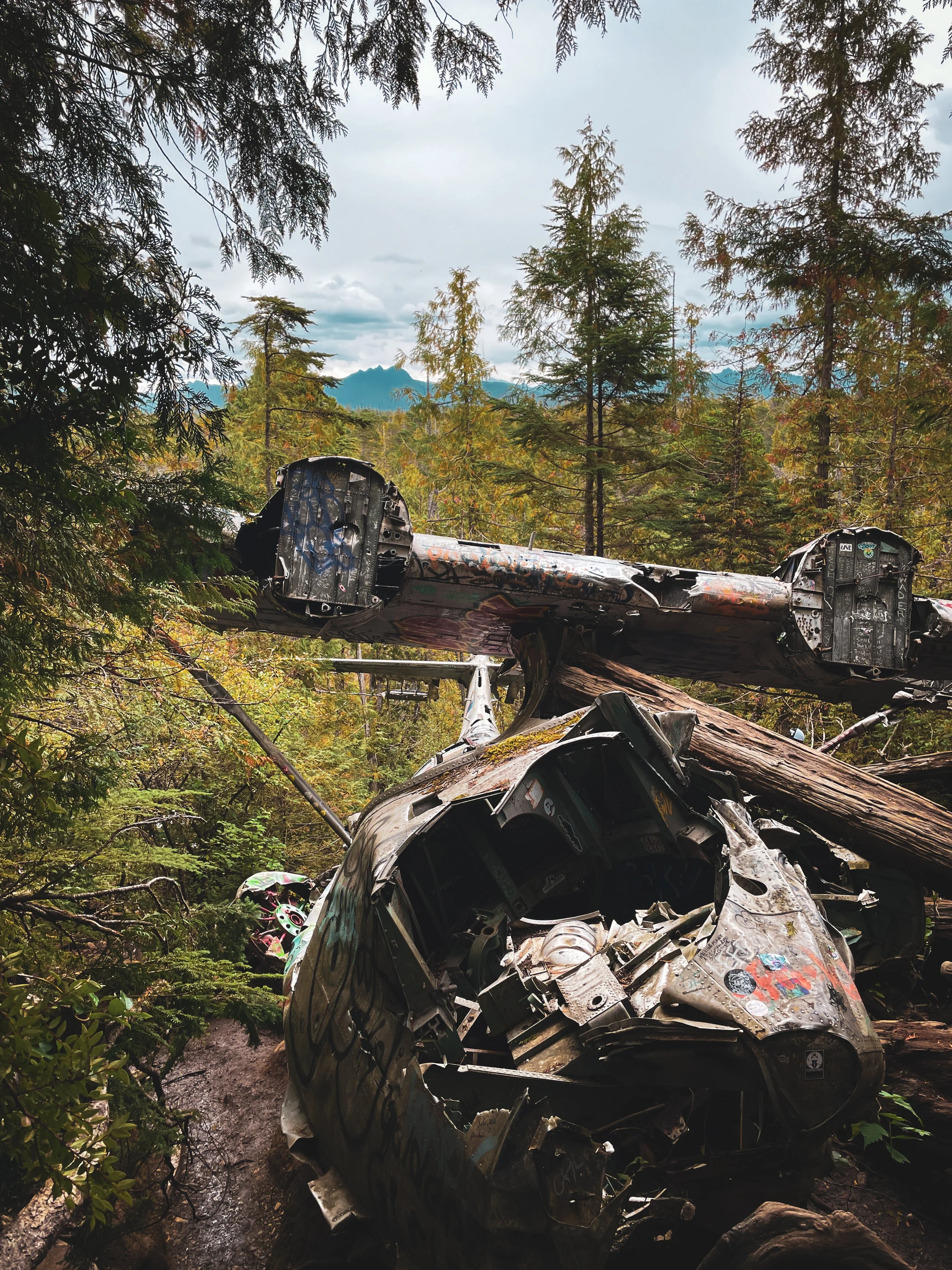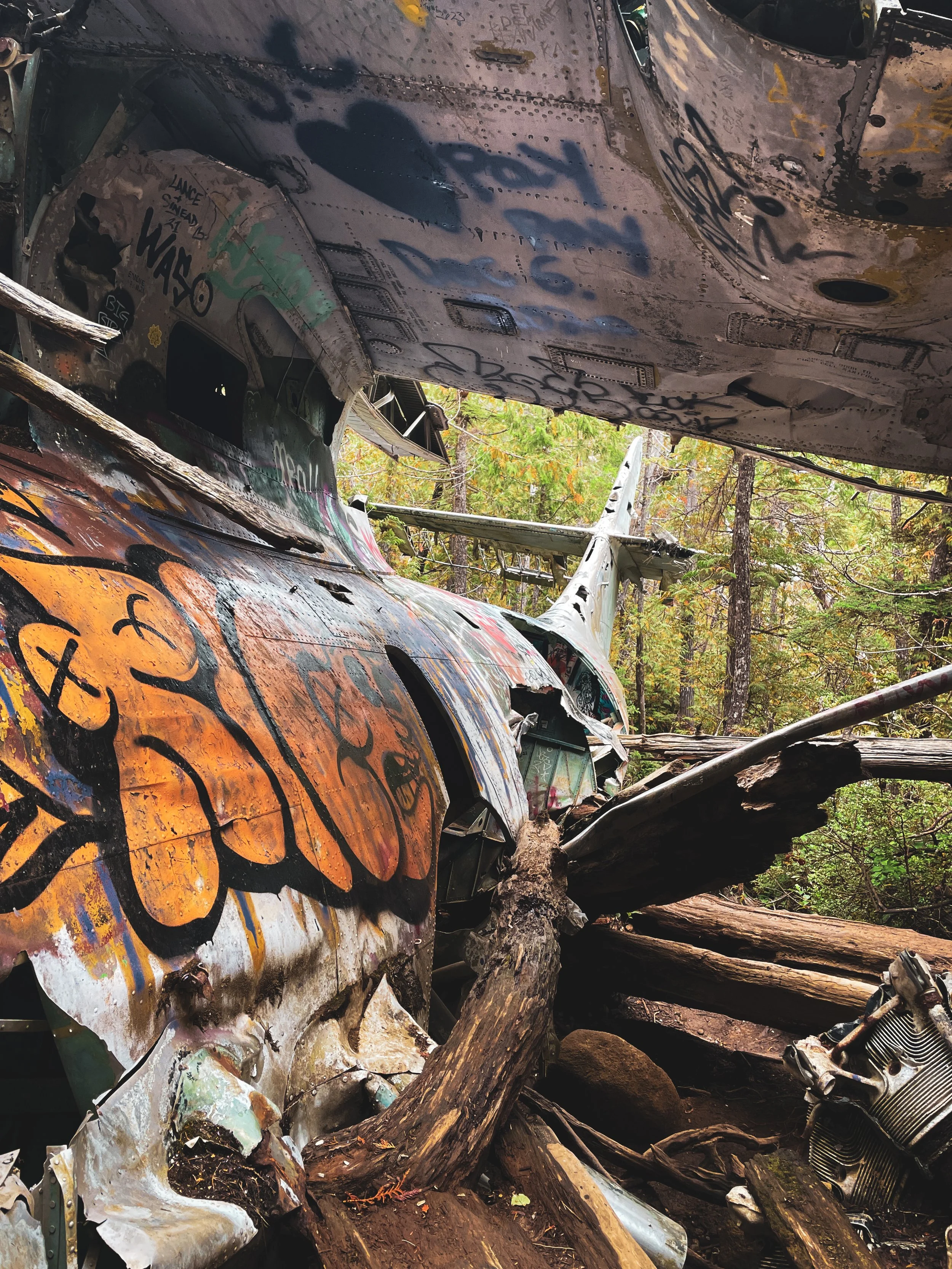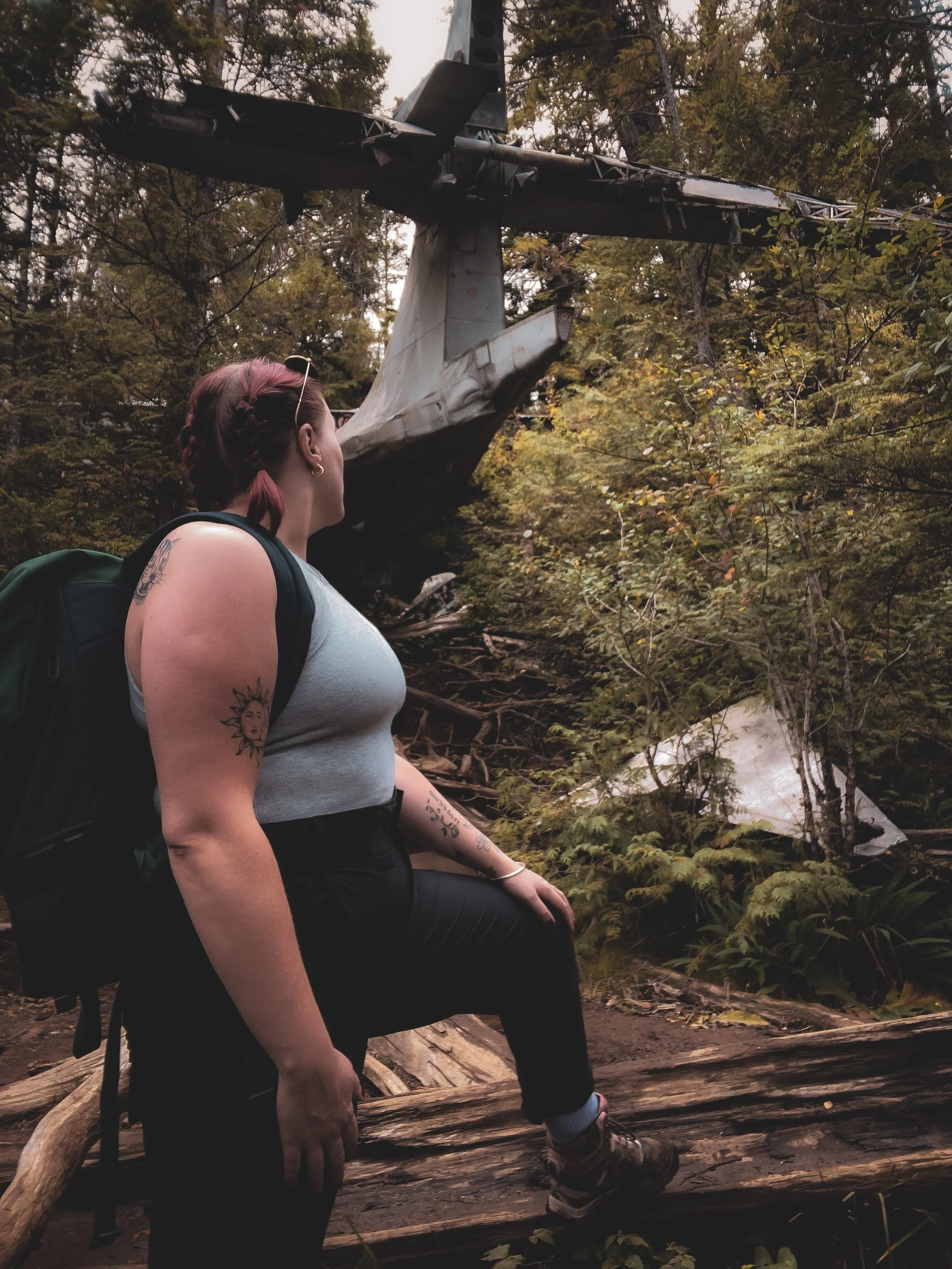The Exploration Bug
The turn-off isn’t exactly signposted, more than by the break in the tree line – the first in some miles. The dense forest gives way here to a narrow overgrown path that twists deep into the trees, giving no clue as to its destination, nothing but a wash of gently swaying leaves. It’s quiet in here, the occasional roar of a car passing by on the highway fading behind me as I wind up a small hill into the forest. My own breathing is the loudest sound around me, the rhythmic heel-toe of my boots digging into the soft forest floor beneath me. The day is overcast but humid and a thin layer of sweat clings to my neck as I walk.
I’ll pass a handful of other people, their muddy shoes my first indication of the path to come, but I’m alone when I reach the abandoned concrete bunker in the middle of the forest. Eerily so. A steady drip drip comes from inside, the hollow windows that once were letting in little light to the dark cavernous space. I could go around, or I could go through. I stick my head in, shudder, and go around.
It’s not very Lara Croft of me, I suppose, but the narrow light of my phone torch isn’t much to cross through this hazardous shell of cracked glass and exposed metal. But the deeper I go, the more I feel like the adventurer that I had grown up longing to be, as the path becomes intermittently tangled in a knot of tree roots and thick mud. I climb over fallen tree trunks and haul myself over swamp land. Dirt is caked beneath my fingernails and my palms are scratched from gripping where I can at tree bark as I pass.
It’s a muddy path out to the crash site.
It’s the kind of feeling that I get so rarely, living in such a controlled, routine way that the city enforces on us. This little spark that grows from wanting to explore, to go beyond the tree line or past where the ocean meets the sky, to find whatever might be out there, calling from the distance. It’s the feeling I had as I sank my feet into the fine sands of the Sahara Desert with the sky stretching out above me; the feeling I had as a dived beneath the surface of the clear blue waters in Australia to greet the sea life below.
It’s the feeling I had watching my older brother play Tomb Raider when I was a child, wondering helplessly, how do I do that?
I owe my parents an overdue apology, I realise as I tramp toward where the trees thin out. My parents who dragged me out of our city house to the countryside as often as they could, into the woods and around the lakes, up on high cliffs by the raging North Sea. These walks that I complained about endlessly, that I grumbled and stomped my way through, not able yet to appreciate how good it felt to stretch my legs with the open sky around to greet me.
Now, as an adult, here I was choosing to spend my holiday traipsing through the forest and up hills and inhaling the outside as much as I possibly can before I am confined back to the towering concrete of the city. Choosing to spend Christmas – a time usually reserved for reading by the fireside and eating an entire extra meal a day – hiking and camping on a mountain on the African continent.
Had I really even disliked the walks as a teenager? I doubt it, in hindsight. More a desperation to be contrary for the sake of being contrary, to find some reason to argue at a time in our lives when we feel predisposed to do so at all costs.
It comes out of nowhere, when I finally reach it – the corpse of a military aircraft suspended between the trees, its nose buried into the trees that have claimed it over the eighty-odd years it’s lain there. It seems to almost hang suspended, in space, in time. As though the slightest breeze ought to have it shaking and shuddering to the ground.
But it is solid in its resting place, the body of the craft ripped open in places, sharp metal edges exposed. Parts of it lie scattered around the site, the whole thing covered in graffiti that makes it almost garish against the green of the trees.
It takes the full weight of my body to haul myself up the tree roots to the highest point of the plane, to stare down the length of it. It is starting to rain, the gentle drops of water ricocheting off the metal shell. I don’t clamber into it, although people clearly have before me, sure that if anyone will be the one to dislodge it from its settled state, it’ll be me. Instead, I manoeuvre my way around it, over fallen debris and under the worn wing, to the end where the tail hangs over my head.
I wasn’t the first to poke through this exploration site, and I would hardly be the last. But the moment felt rare in the context of today’s world: to be alone, in the middle of the forest, with nothing but the ghosts of history hanging in the air around me.
Lara Croft is an explorer in the search of items, artefacts pilfered from tombs and caves, usually under the guise of before-the-bad-guys-use-them-to-destroy-the-world. I’m an explorer in search of stories, collecting up those that I make, those that I learn, and those that could have once existed in the breaths whispered between trees, now lost to the roots below. The plane remains where it crashed, for others seeking stories, or just a moment to disappear from the ordinary, off the beaten path.
Alone in the forest.
The rain only gets worse as I retrace my steps back to the main road. The mud swallows my boots whole in some places, and I go headfirst over a tree root along the way into a particularly thick patch. It’s lashing down by the time I reach the trailhead and I use it to rinse the worst of the mud from my palms before hunkering into my waterproofs and setting off back for my cabin. Just another hour’s walk down the road.
It rains long into the night, even well after I’ve showered off and curled into a thick jumper and woollen socks; it batters down against the roof of my cabin and soaking the trees that shelter my little wooden sanctuary from the outside world. The plane remains where it is, but the story returns home with me, even as the mud dries on my boots and flakes off into the next path I tread.




